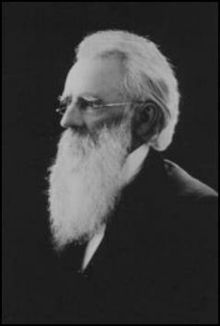Mason Brayman
| Mason Brayman | |
|---|---|
 |
|
| 7th Governor of Idaho Territory | |
|
In office July 24, 1876 – August 3, 1880 |
|
| Nominated by | Ulysses S. Grant |
| Preceded by | David P. Thompson |
| Succeeded by | John Baldwin Neil |
| Personal details | |
| Born | May 23, 1813 Buffalo, New York |
| Died | February 27, 1895 (aged 81) Kansas City, Missouri |
| Political party | Republican |
| Profession | printer, attorney, military officer, politician |
| Military service | |
| Service/branch |
United States Army Union Army |
| Years of service | 1861–1865 |
| Rank |
|
| Battles/wars | Battle of Shiloh |
Mason Brayman (May 23, 1813 – February 27, 1895) was an American attorney, newspaperman, and military officer. During his service to the Union Army during the American Civil War, he rose to the rank of brigadier general. Later in life, he became the seventh Governor of the Idaho Territory.
Brayman was born in Buffalo, New York on May 23, 1813. Raised with a Calvinist outlook and a hatred of liquor, he was apprenticed to a printer at the age of 17. Five years later he became editor of a local newspaper. In addition to his work with newspapers, he studied law and was admitted to the New York Bar in 1836.
The year after his admission to the bar, Brayman married his wife, Mary. She was a direct descendant of Roger Williams and the union produced three daughters. Following his marriage Brayman began a series of westward moves, working as a city attorney in Michigan and newspaper editor in Ohio before settling in Springfield, Illinois, during the early 1840s.
In Springfield, Brayman practiced law with Jesse B. Thomas, Jr., and wrote editorials for the town's newspapers. In addition to spending time with persons such as Abraham Lincoln and Stephen A. Douglas, he oversaw the American Baptist Publishing Society, was active in the temperance movement, and was a leader of the local Baptist church.
In 1844, Brayman gained statewide prominence by accepting a commission from Governor Thomas Ford to revise the Illinois legal code. Two years later he was commissioned as a special prosecutor to deal with incidents occurring during the Illinois Mormon War. In this capacity he devised the agreement which allowed the Mormons to leave Illinois.
...
Wikipedia
